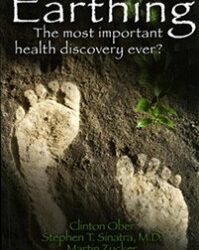 Websites and articles about post traumatic stress disorder (PTSD).
Websites and articles about post traumatic stress disorder (PTSD).
Fight Off That Constant Exhaustion
Shannon Bartlett writes about Dr. Martin Pall’s research that focuses on one cause for four chronic and controversial diseases: Chronic Fatigue Syndrome (CFS), Post-Traumatic Stress Disorder (PTSD), Fibromyalgia (FM), and Multiple Chemical Sensitivity (MCS)
Gupta Amygdala Retraining™
Ashok Gupta offers a DVD program, as well as in-person treatments, to help retrain the brain and calm the hyperaroused amygdala—the brain’s fight or flight center of fear and anxiety. His program treats Chronic Fatigue Syndrome (CFS), as well as related conditions of Post-Traumatic Stress Disorder (PTSD), Fibromyalgia (FM), and Multiple Chemical Sensitivity (MCS).
Somatic Experiencing (SE)
Somatic Experiencing® (SE) is a short-term naturalistic approach to the resolution and healing of trauma developed by Dr. Peter Levine, based upon the observation that wild prey animals, though threatened routinely, are rarely traumatized. Animals in the wild utilize innate mechanisms to regulate and discharge the high levels of energy arousal associated with defensive survival behaviors. These mechanisms provide animals with a built-in “immunity” to trauma that enables them to return to normal in the aftermath of highly “charged” life-threatening experiences.
The Tenth Paradigm Society
The mission of the Tenth Paradigm Society is to gain recognition and acceptance for a tenth new major theory (or paradigm) of human disease, which explains previously unexplained multisystem illnesses and to conquer these illnesses which include: Chronic Fatigue Syndrome (CFS or CFIDS), Multiple Chemical Sensitivity (MCS), Fibromyalgia (FM), Post Traumatic Stress Disorder (PTSD), and Gulf War Syndrome (GWS).
The Tenth Paradigm
Martin L. Pall, PhD’s website that offers a detailed explanation of his NO/ONOO theory on a common causal (etiologic) mechanism for Chronic Fatigue Syndrome/Myalgic Encephalomyelitis, Multiple Chemical Sensitivity, Fibromyalgia and Post-Traumatic Stress Disorder.









0 Comments